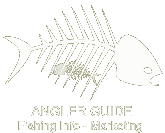 |  |
|
Navigation - Business - Great Lakes - Great Plains - Northeast - Northwest - Rocky Mountains - Southeast - Southwest - Technology - Trophy Catches
|
The obvious counterattack is to reduce how much you run that boat motor. When you are fishing, you want to go where the fish are, or might be. Thatís obvious. Some thought may be given to just cruising around on a lake or river during your fishing outing. Some other steps can be taken to make the fuel dollars go farther, according to the Arkansas Game and Fish Commission. Take out items you donít need for that particular fishing day. Any weight adds to the boatís consumption of gasoline or diesel just like it does in a car or truck. Do you really need that spare battery this trip? How about that second tank of gasoline if you are just running a few miles on the lake? Extra anchor when one will suffice? If you are using a bass boat with one or two live wells, wait until you have fish before filling them. Do some quick math. A gallon of water weighs 8.33 pounds. Twenty gallons of water in a live well amounts to some weight. An engine tune-up on the boat motor can be just as beneficial as one for your car. The engine running better will save anywhere from a little fuel to a lot of fuel. Few fishermen give much thought to their motorsí propellers unless the boat begins vibrating heavily. Props get nicks by bumping stumps, rocks and such. If your boat goes 30 miles an hour with a new prop but only 27 miles an hour with one that has been dinged, then youíre probably wasting one gallon of gas in 10. Clean the boatís bottom. Anything slowing the flow of the boat in the water is a fuel waster, as minor as some clinging grass may seem. Get the boat in trim when you are underway. For a bass boat, getting it up on plane quickly means less strain on the motor than churning along at low speed. Shift items around in the boat for the best distribution of weight. Moving a tackle box from the front to mid-ship can help a bit. Fill up the boatís fuel tank at home or en route to the lake or river. Consider using a tight-fitting cover on the boat to save a little fuel in your tow vehicle. An open boat behind your truck or car creates wind drag.
Comments
«Back | News Home
| |||||||||||||||||||||||||||||||||||